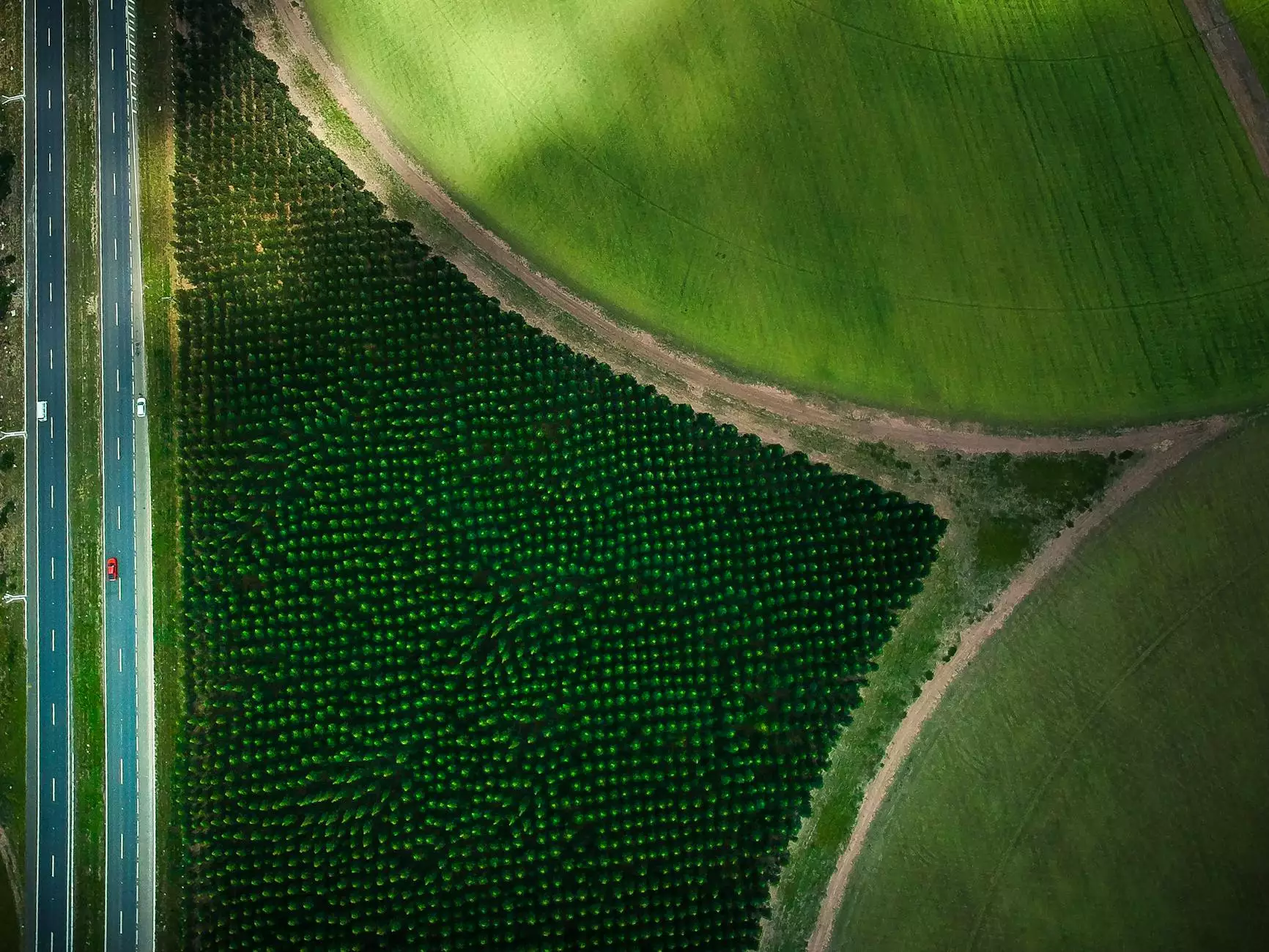Mulch: Different Types, Benefits, and How to Apply

Introduction
Welcome to Cutting Hedge Services, where we provide comprehensive guidance and services on all things related to mulch. In this article, we will take you on a journey through the world of mulch, discussing the different types available, their numerous benefits, and the proper techniques for mulch application. Whether you are a seasoned gardener or someone new to the world of landscaping, this information will help you make informed decisions to enhance the health and beauty of your outdoor spaces.
Types of Mulch
When it comes to mulch, there is a wide variety of options to choose from, each with its unique characteristics and benefits. Let's explore the most popular types:
1. Organic Mulch
Organic mulch is derived from natural materials such as wood chips, straw, leaves, grass clippings, and compost. Its main advantage is that it gradually decomposes, enriching the soil with essential nutrients. Organic mulch also helps retain moisture, regulates soil temperature, prevents weed growth, and improves soil structure.
2. Inorganic Mulch
Inorganic mulch, on the other hand, consists of materials like stones, gravel, rubber, or plastic. Unlike organic mulch, it doesn't break down over time, making it a long-lasting option. Inorganic mulch is excellent for preventing weed growth, conserving water, and giving your landscape a clean and polished look.
3. Living Mulch
Living mulch involves using low-growing plants, such as groundcovers, to cover the soil between larger plants. This type of mulch provides similar benefits to organic mulch, but with the added advantage of being self-sustaining. Living mulch acts as a natural weed suppressor, prevents erosion, and attracts beneficial insects.
4. Rubber Mulch
Rubber mulch is made from recycled tires and is gaining popularity due to its durability and eco-friendly nature. It provides excellent insulation against extreme temperatures, reduces weed growth, retains moisture, and helps prevent soil erosion. Moreover, rubber mulch does not decompose and requires minimal maintenance.
5. Stone Mulch
Stone mulch, often made from crushed rocks or pebbles, serves both functional and aesthetic purposes. It provides good drainage, prevents soil erosion, and does not decompose. Stone mulch is a popular choice for pathways, driveways, or areas with high foot traffic due to its durability and low maintenance requirements.
Benefits of Using Mulch
Now that we have explored the different types of mulch, let's dive into the multitude of benefits that mulching offers to your garden or landscaping project:
1. Moisture Retention
Mulch acts as a protective layer that reduces evaporation, helping to retain moisture in the soil. This is especially crucial during dry spells or in regions with limited water availability. By keeping the soil adequately hydrated, mulch ensures the healthy growth and survival of your plants.
2. Weed Suppression
One of the most significant advantages of using mulch is its ability to suppress weed growth. Mulch creates a barrier that blocks sunlight from reaching weed seeds, preventing them from sprouting and competing with your desired plants for water and nutrients. This minimizes the need for manual weeding and simplifies maintenance tasks.
3. Soil Regulation
Mulch helps regulate soil temperature, acting as insulation during extreme weather conditions. It keeps the soil cooler in hot summers and warmer during cold winters. Additionally, mulch protects against erosion caused by heavy rainfall, preventing soil compaction and ensuring a healthy soil structure.
4. Nutrient Enrichment
Organic mulches, as they decompose, release valuable nutrients into the soil, enriching it and promoting the vigorous growth of plants. The gradual breakdown of organic mulch mimics the natural processes found in the forest floor, where fallen leaves and organic matter contribute to the overall fertility of the soil.
5. Aesthetic Appeal
Mulch can greatly enhance the visual appeal of your garden or landscape. Different types of mulch offer various textures, colors, and finishes, allowing you to create striking contrasts or soothing harmonies within your outdoor spaces. A well-mulched area looks neat, defined, and professionally maintained.
How to Apply Mulch
Proper application of mulch ensures optimal results and maximizes its benefits. Follow these steps to apply mulch effectively:
1. Prepare the Area
Clean the area from weeds, debris, and any obstructions before adding mulch. It is essential to start with a clean, even surface to ensure proper mulch distribution and prevent weed problems in the future.
2. Calculate the Amount
Determine the quantity of mulch needed by measuring the area's length and width. Knowing the recommended depth for the particular type of mulch will help you calculate the required volume accurately.
3. Choose the Right Mulch
Select the appropriate mulch type based on your gardening or landscaping needs. Consider factors such as plant preferences, soil conditions, climate, and aesthetic preferences to make an informed decision.
4. Application Techniques
The two most common application techniques are "top dressing" and "base mulching." Top dressing involves the application of mulch on the surface of the soil around existing plants, while base mulching requires the mulch to be spread over an entire planted area, including around new plantings.
5. Maintain the Mulch Layer
Mulch requires periodic maintenance to ensure its effectiveness. Regularly check the mulch layer for any signs of compaction, excessive decomposition, or weed breakthrough. Adding a thin layer of fresh mulch annually will help rejuvenate the appearance and benefits of existing mulch.
Conclusion
Congratulations! You are now equipped with in-depth knowledge about mulch, its different types, benefits, and best practices for application. Remember that using mulch in your garden or landscaping not only enhances the health and appearance of your outdoor spaces but also reduces the need for excessive watering, weeding, and other maintenance tasks. For expert advice and top-quality mulching services, Cutting Hedge Services is here to meet all your mulch-related needs. Embrace the power of mulching and create beautiful, thriving landscapes all year round.










